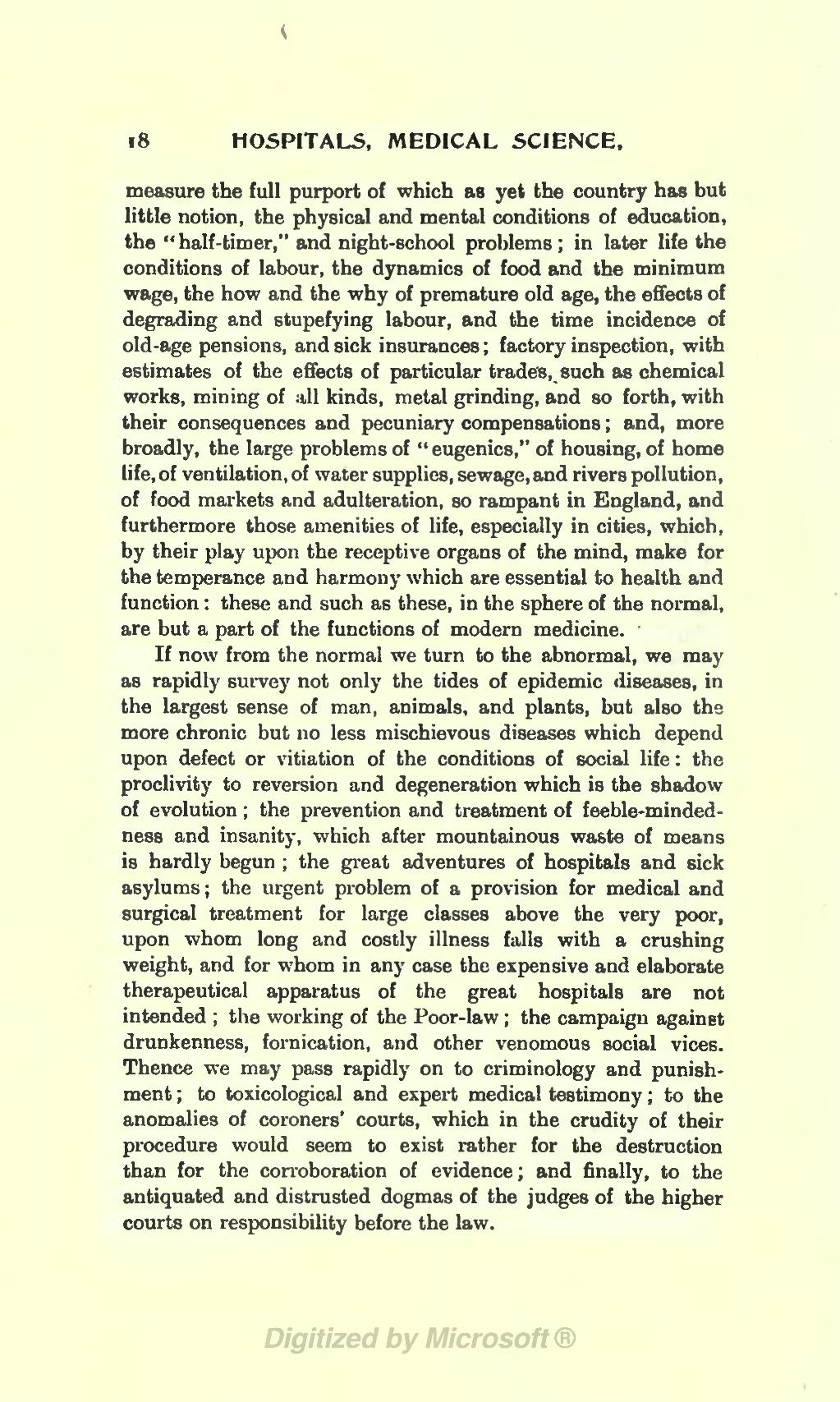measure the full purport of which as yet the country has but little notion, the physical and mental conditions of education, the "half-timer," and night-school problems; in later life the conditions of labour, the dynamics of food and the minimum wage, the how and the why of premature old age, the effects of degrading and stupefying labour, and the time incidence of old-age pensions, and sick insurances; factory inspection, with estimates of the effects of particular trades, such as chemical works, mining of all kinds, metal grinding, and so forth, with their consequences and pecuniary compensations; and, more broadly, the large problems of "eugenics," of housing, of home life, of ventilation, of water supplies, sewage, and rivers pollution, of food markets and adulteration, so rampant in England, and furthermore those amenities of life, especially in cities, which, by their play upon the receptive organs of the mind, make for the temperance and harmony which are essential to health and function: these and such as these, in the sphere of the normal, are but a part of the functions of modern medicine.
If now from the normal we turn to the abnormal, we may as rapidly survey not only the tides of epidemic diseases, in the largest sense of man, animals, and plants, but also the more chronic but no less mischievous diseases which depend upon defect or vitiation of the conditions of social life: the proclivity to reversion and degeneration which is the shadow of evolution; the prevention and treatment of feeble-mindedness and insanity, which after mountainous waste of means is hardly begun; the great adventures of hospitals and sick asylums; the urgent problem of a provision for medical and surgical treatment for large classes above the very poor, upon whom long and costly illness falls with a crushing weight, and for whom in any case the expensive and elaborate therapeutical apparatus of the great hospitals are not intended; the working of the Poor-law; the campaign against drunkenness, fornication, and other venomous social vices. Thence we may pass rapidly on to criminology and punishment; to toxicological and expert medical testimony; to the anomalies of coroners' courts, which in the crudity of their procedure would seem to exist rather for the destruction than for the corroboration of evidence; and finally, to the antiquated and distrusted dogmas of the judges of the higher courts on responsibility before the law.
